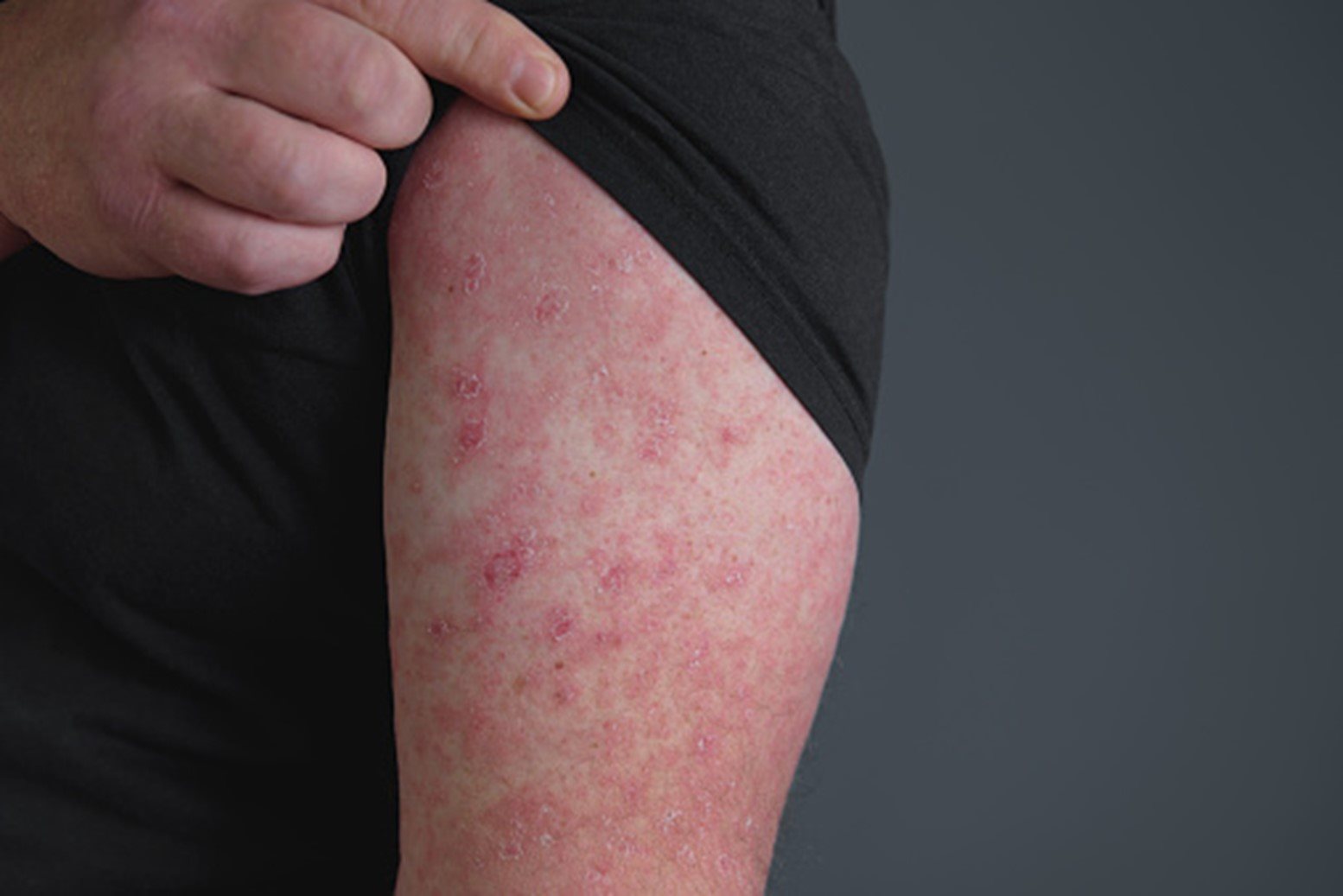Plaque Psoriasis Treatment in Salt Lake City, UT
We Specialize In Managing Plaque Psoriasis

Uncover effective solutions for plaque psoriasis at Swinyer-Woseth Dermatology, your trusted partner in skin health, serving South Jordan and Salt Lake City, UT. Living with plaque psoriasis can be challenging, but our specialized treatment services are tailored to address your unique needs. Discover comprehensive strategies on how to remove psoriasis scales, prevent flare-ups, and stop plaque psoriasis in its tracks. Our experienced team understands the nuances of managing this condition, including insights on preventing psoriasis triggers, especially during the winter months. Schedule your appointment now to embark on a journey toward lasting relief from plaque psoriasis.
What Is Plaque Psoriasis?
Plaque psoriasis is a chronic autoimmune skin condition characterized by the rapid and excessive production of skin cells. In individuals with plaque psoriasis, the immune system mistakenly triggers skin cells to multiply at an accelerated rate, leading to the formation of thick, red, and often silvery-scaled patches known as plaques. These plaques commonly appear on the elbows, knees, scalp, and lower back, though they can manifest on any part of the body. Beyond its physical manifestations, plaque psoriasis can be associated with discomfort, itching, and, in some cases, pain. The condition is not contagious, and while its exact cause remains unclear, genetic factors and an overactive immune response are believed to contribute to its development.
Triggers for Plaque Psoriasis
Understanding the triggers for plaque psoriasis is crucial for individuals managing this chronic skin condition. While the exact cause remains complex, certain factors can exacerbate symptoms. Here’s a list of common triggers:
- Stress – High-stress levels can contribute to psoriasis flare-ups. The body’s response to stress may prompt an overactive immune system, triggering the rapid growth of skin cells characteristic of plaque psoriasis.
- Infections and Injuries – Infections, particularly streptococcal infections, can trigger psoriasis. Additionally, skin injuries, such as cuts or sunburns, may lead to the development of new psoriatic lesions, known as the Koebner phenomenon.
- Cold Weather – Winter’s cold, dry air can exacerbate symptoms. The lack of humidity can lead to skin dryness, potentially triggering flare-ups in individuals with plaque psoriasis.
- Smoking and Alcohol Consumption – Both smoking and excessive alcohol consumption have been identified as potential triggers for psoriasis. These lifestyle factors may contribute to inflammation and negatively impact the immune system, influencing the severity of psoriasis symptoms.
- Hormonal Changes – Hormonal fluctuations, such as those occurring during puberty, pregnancy, or menopause, can impact psoriasis symptoms. Women may experience changes in the severity and frequency of flare-ups during these hormonal shifts.
Tips to Avoid Plaque Psoriasis Triggers
Successfully managing plaque psoriasis involves adopting proactive measures to minimize triggers and promote skin health. Consider these practical tips to avoid common triggers:
- Keep Yourself Hydrated – Adequate hydration is fundamental for maintaining skin health. Staying well-hydrated helps prevent skin dryness, a factor that can exacerbate plaque psoriasis. Drink plenty of water to support overall skin hydration.
- Your Skin Should Be Moisturized – Regular moisturization is key to managing psoriasis symptoms. Apply fragrance-free, hypoallergenic moisturizers to keep the skin hydrated and reduce the risk of irritation. Moisturized skin is less prone to developing psoriatic lesions.
- Do Not Take Long, Hot Showers – While a long, hot shower may be tempting, it can strip the skin of its natural oils and contribute to dryness. Opt for shorter, lukewarm showers to prevent exacerbating psoriasis symptoms and maintain skin moisture.
- Limit Your Alcohol Consumption – Excessive alcohol consumption has been linked to psoriasis flare-ups. Limiting alcohol intake can help manage inflammation and reduce the risk of triggering psoriasis symptoms. It’s essential to strike a balance and consume alcohol in moderation.
- Enhance Your Diet – Adopting a well-balanced diet rich in anti-inflammatory foods, such as fruits, vegetables, and omega-3 fatty acids, can positively impact psoriasis. Nutrient-dense foods support overall skin health and may help mitigate the effects of certain triggers.
Contact Swinyer-Woseth Dermatology
Experience a renewed sense of confidence with Swinyer-Woseth Dermatology‘s unparalleled plaque psoriasis treatment services in South Jordan and Salt Lake City, UT. Our dedicated team is committed to providing you with effective strategies on how to prevent psoriasis, offering personalized solutions to help you get rid of plaque psoriasis and mitigate its impact. Embrace a life free from the constraints of plaque psoriasis, and contact Swinyer-Woseth Dermatology today.
